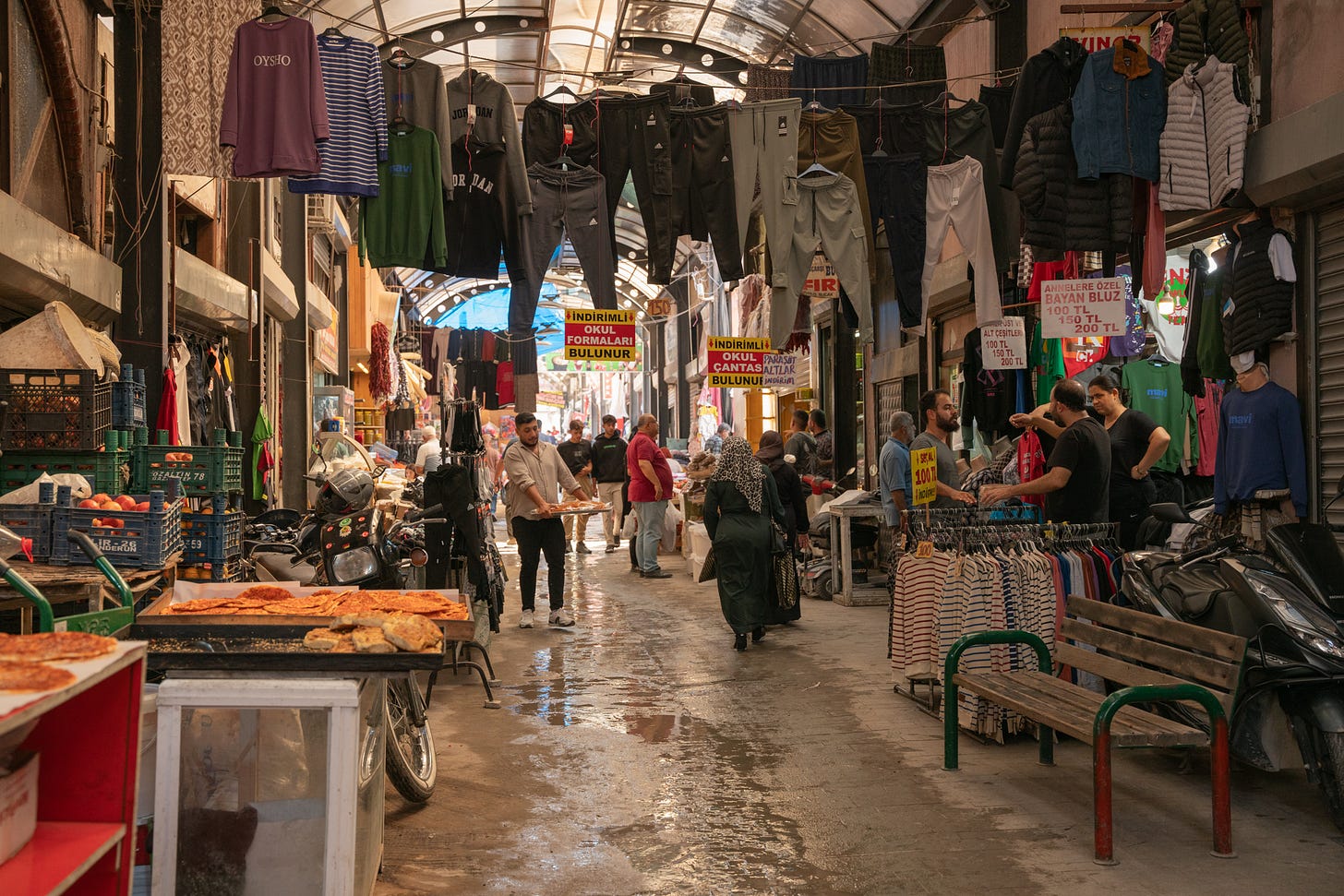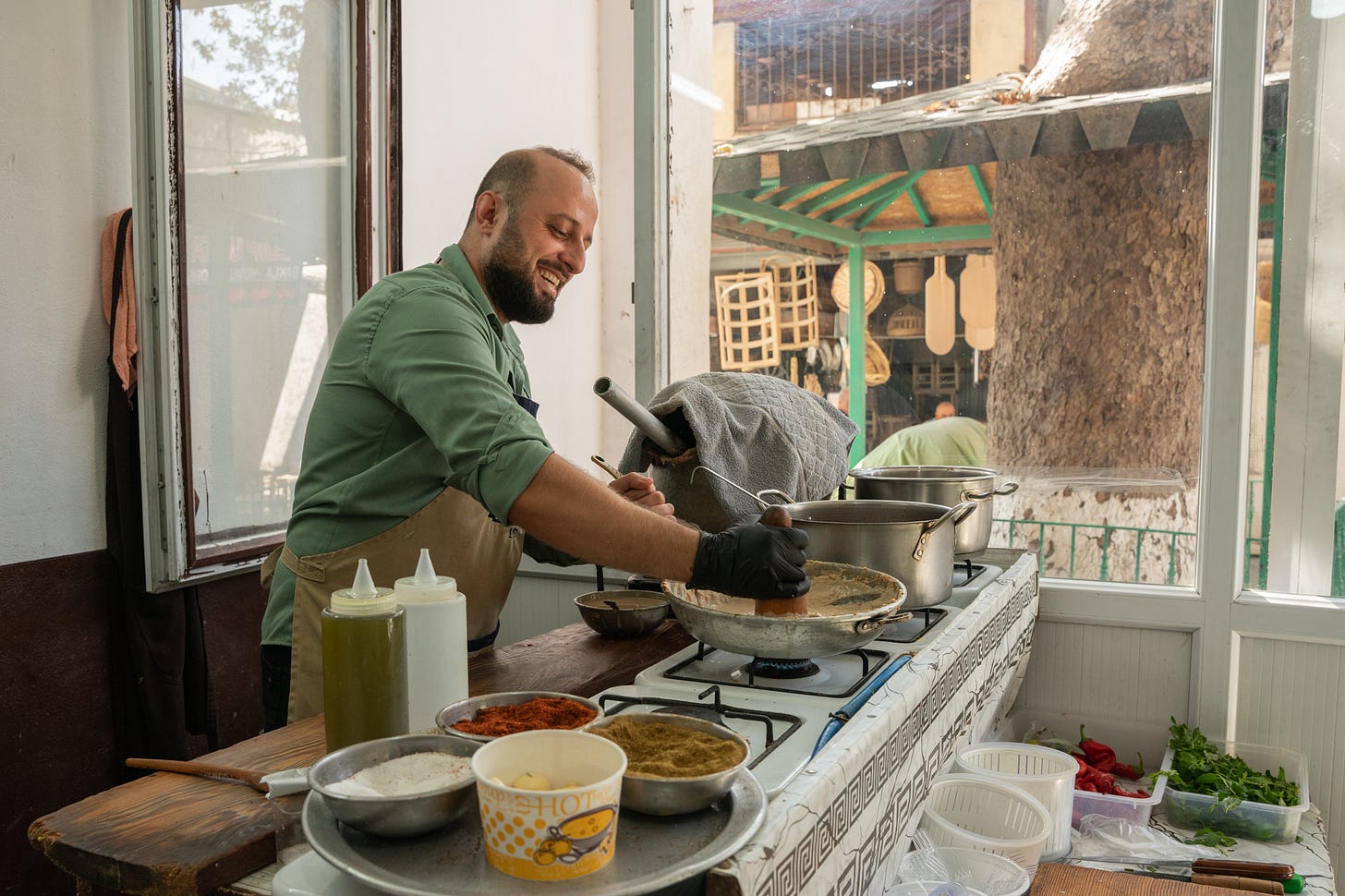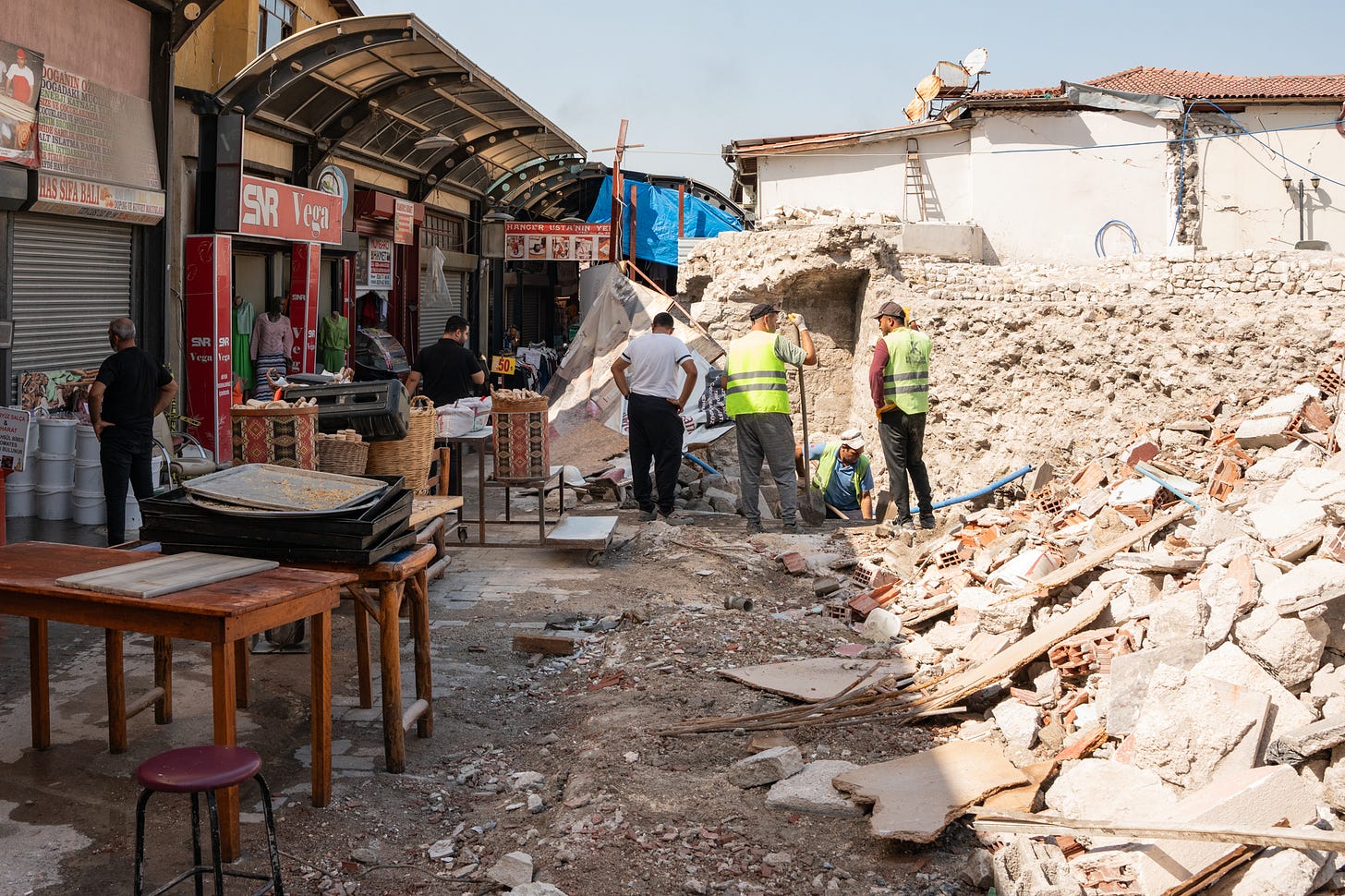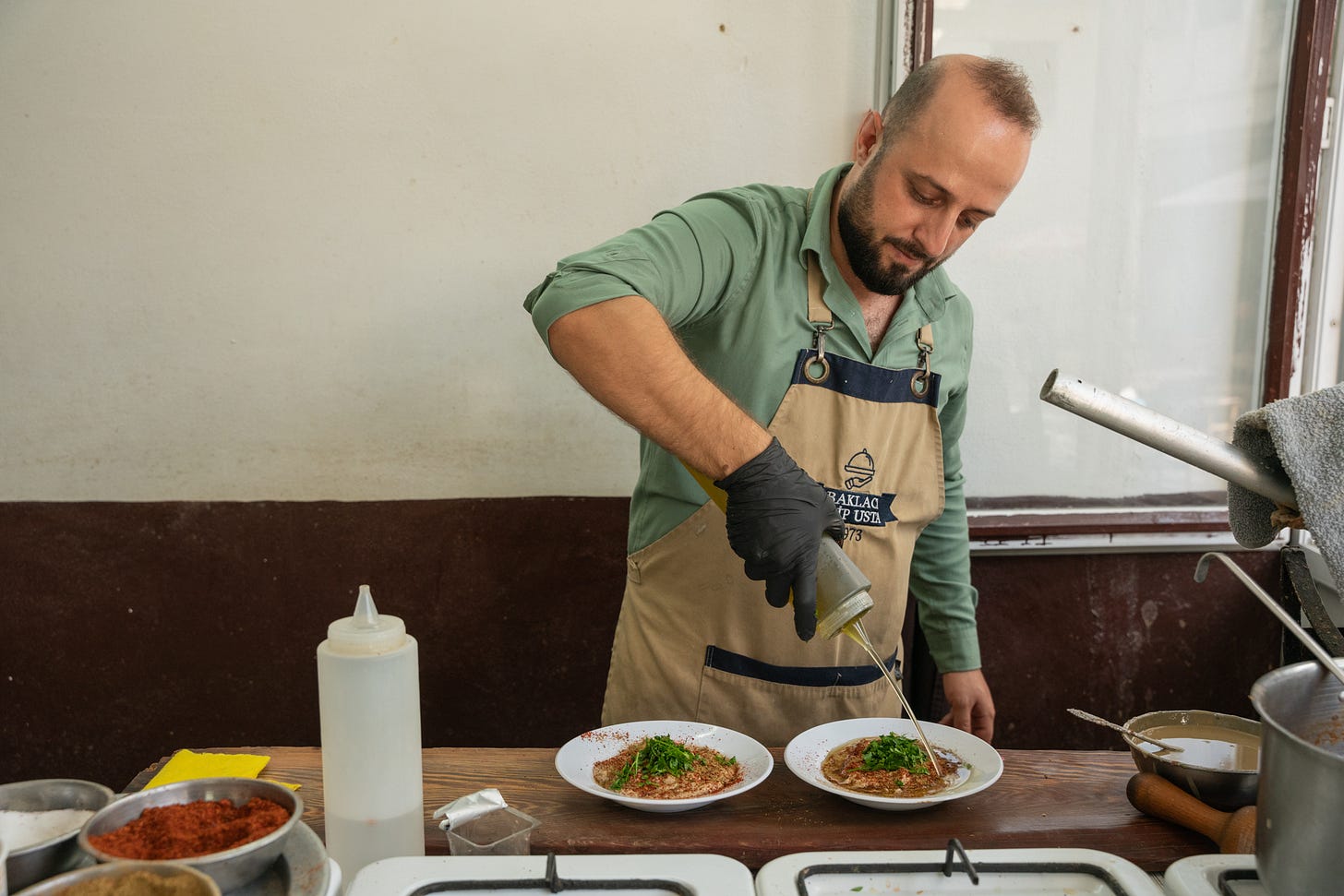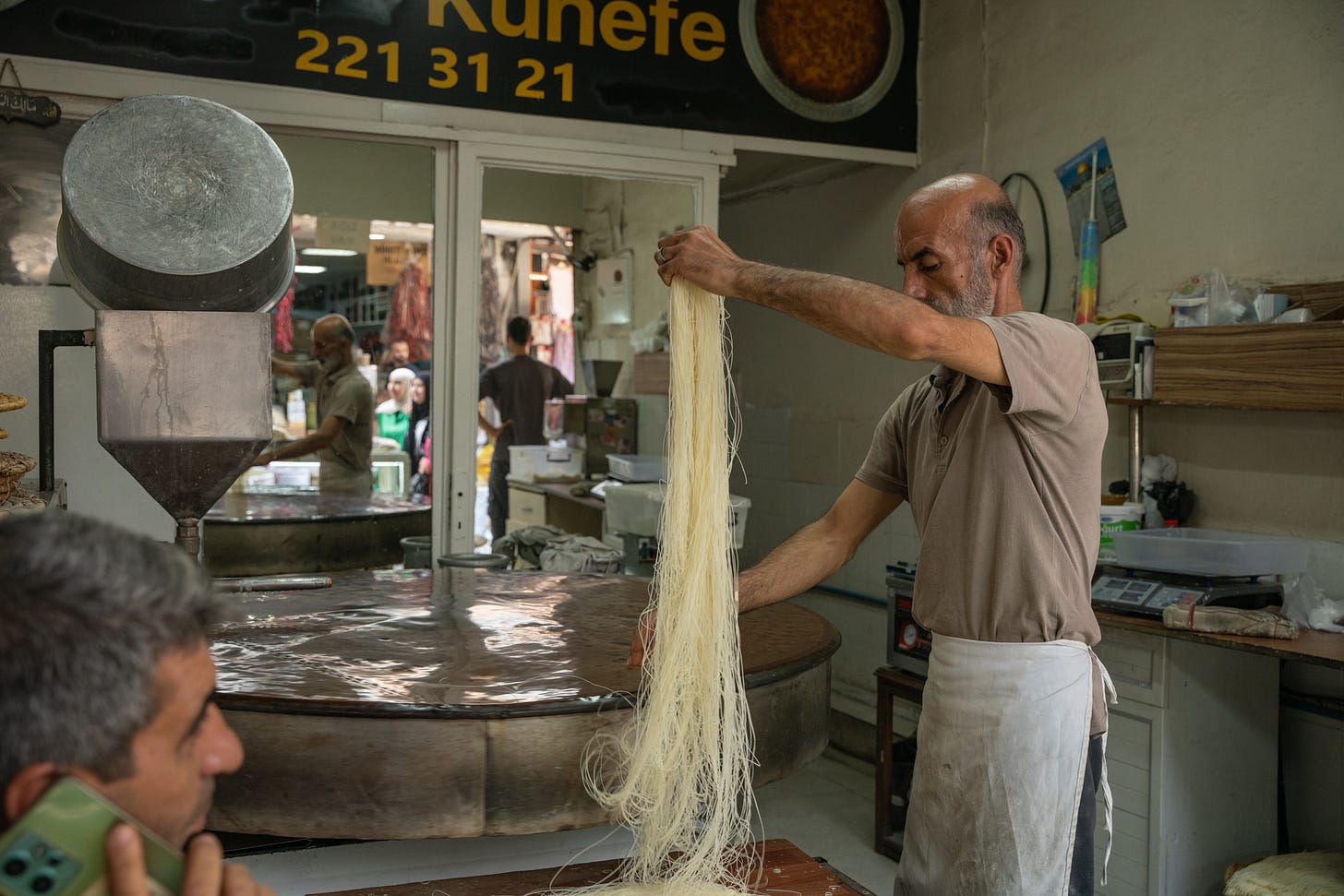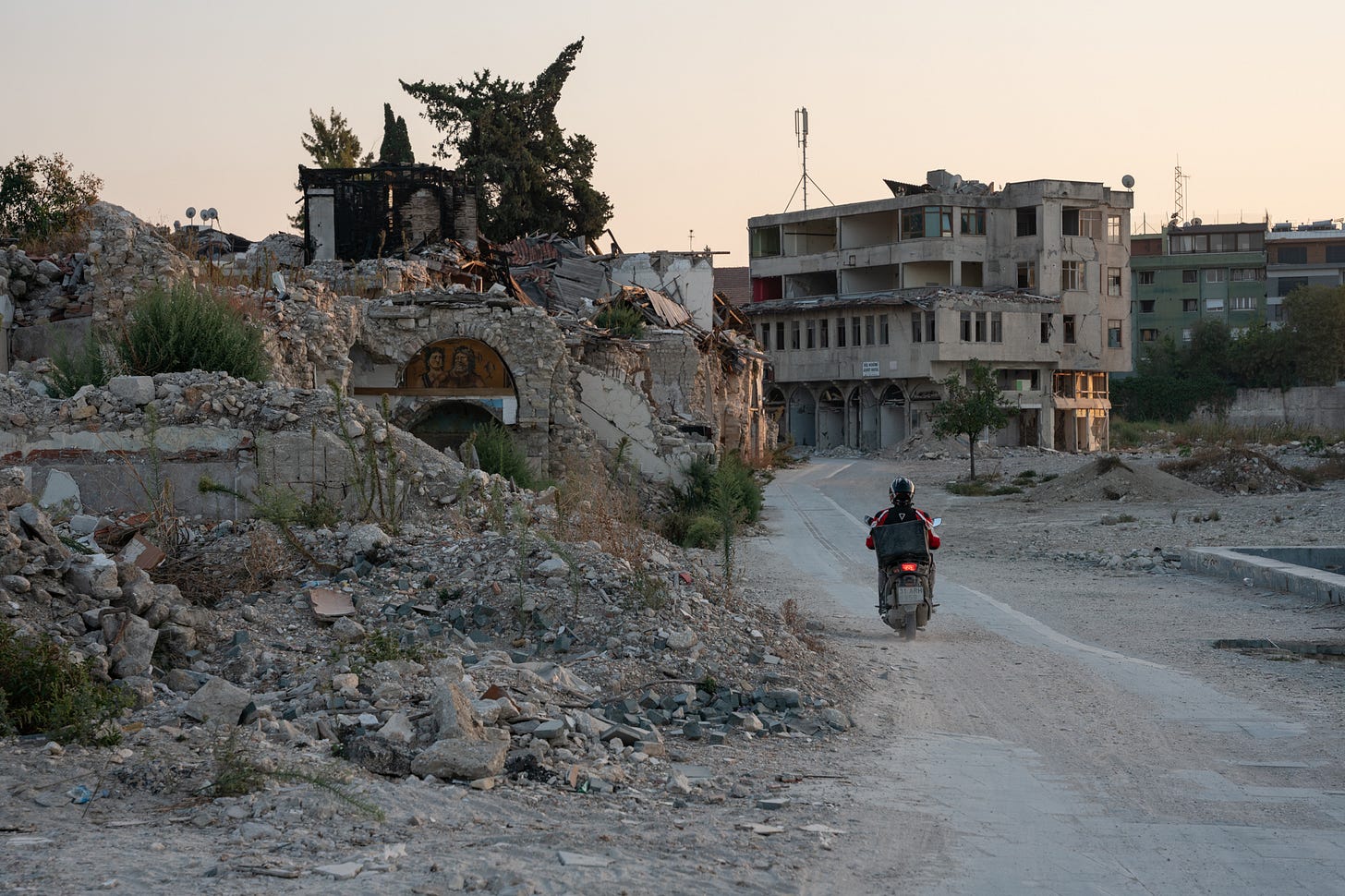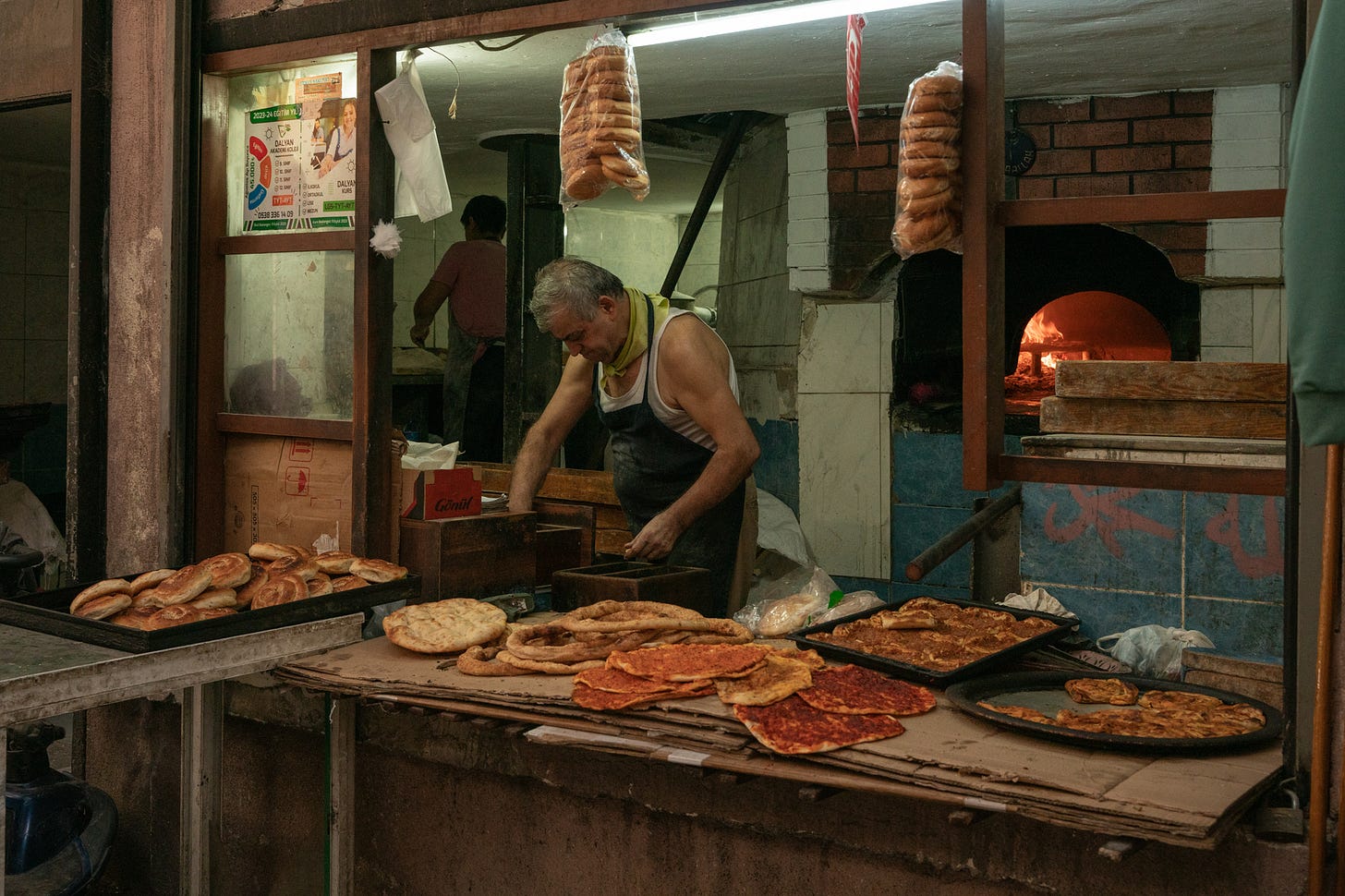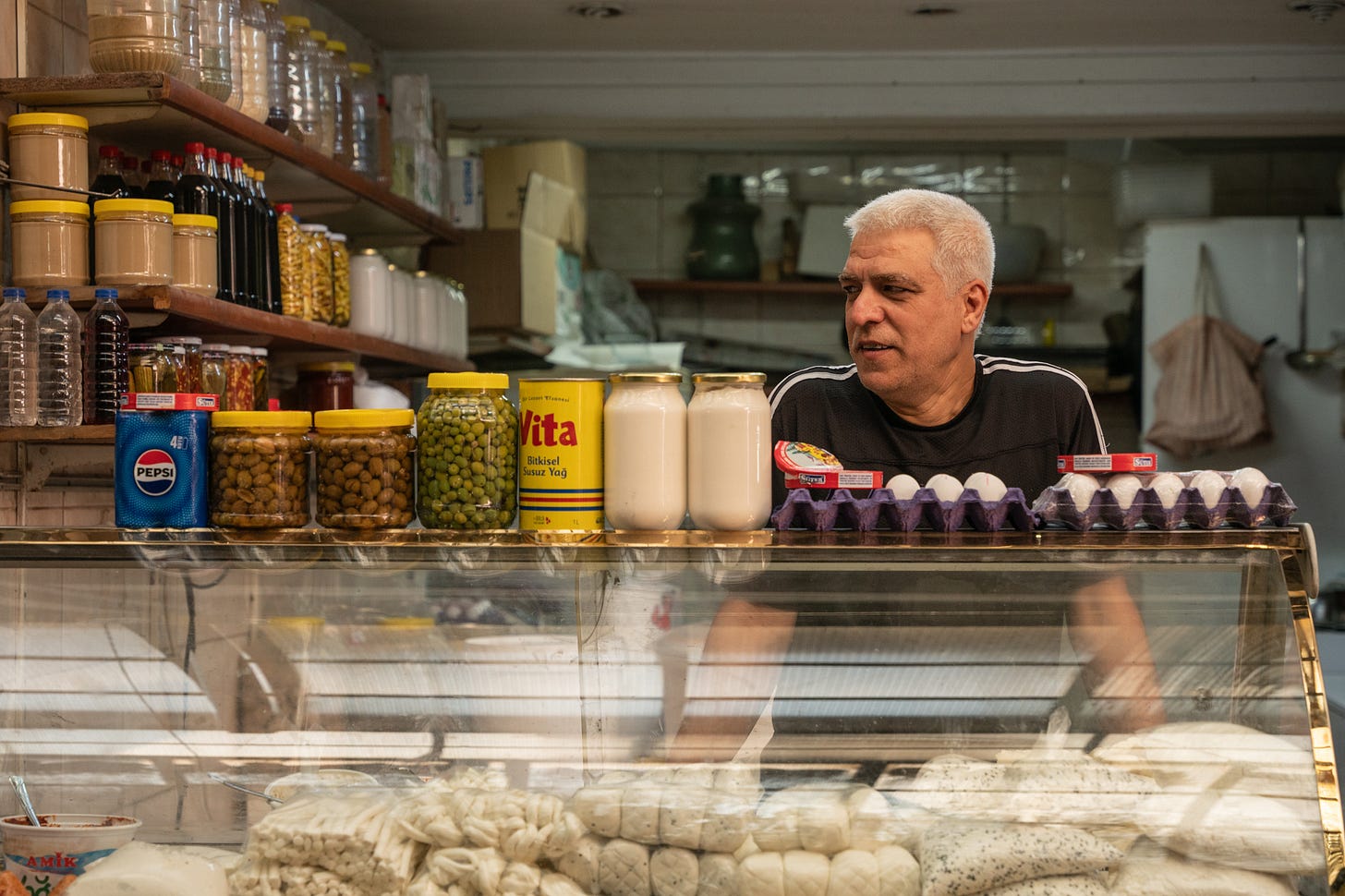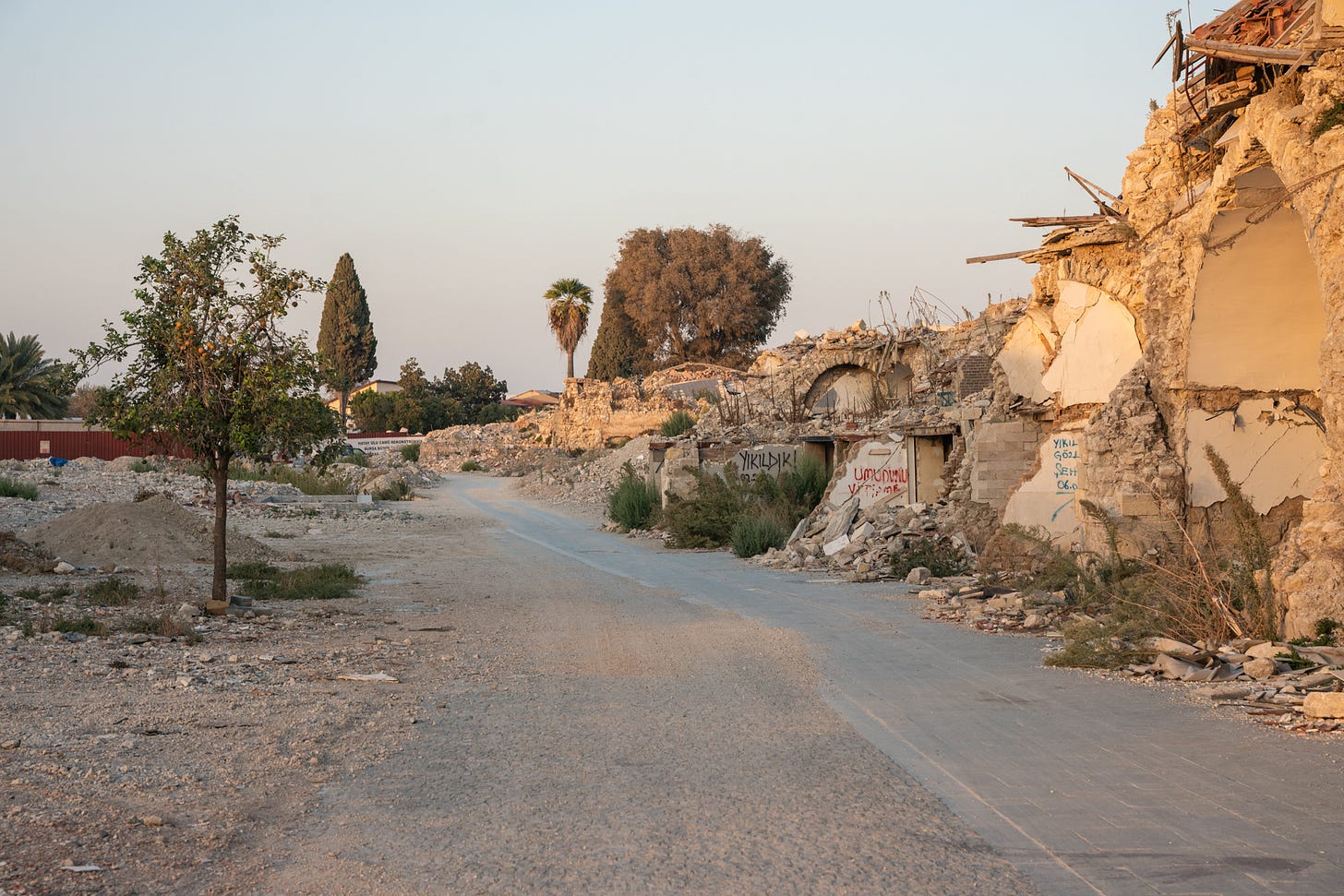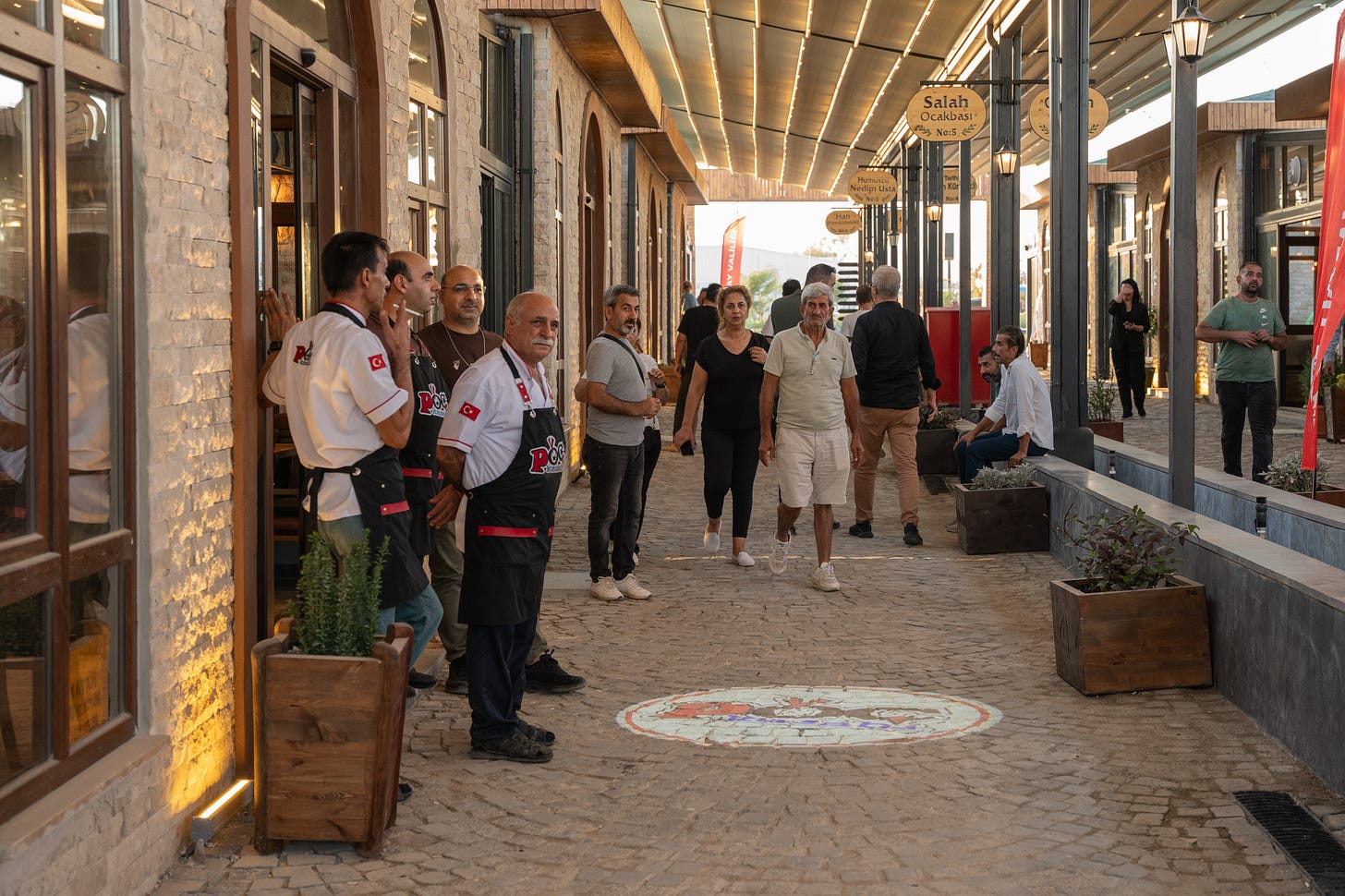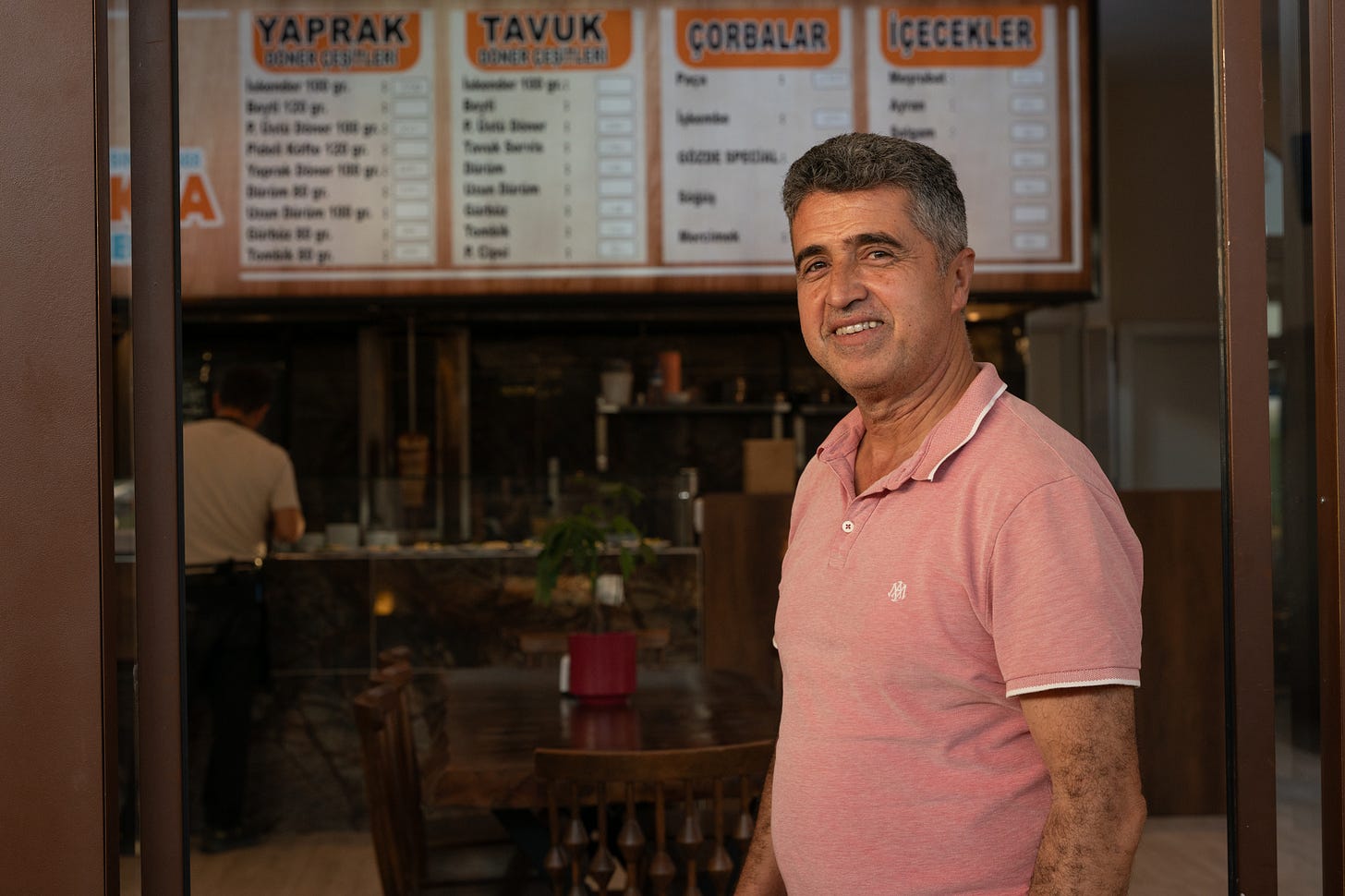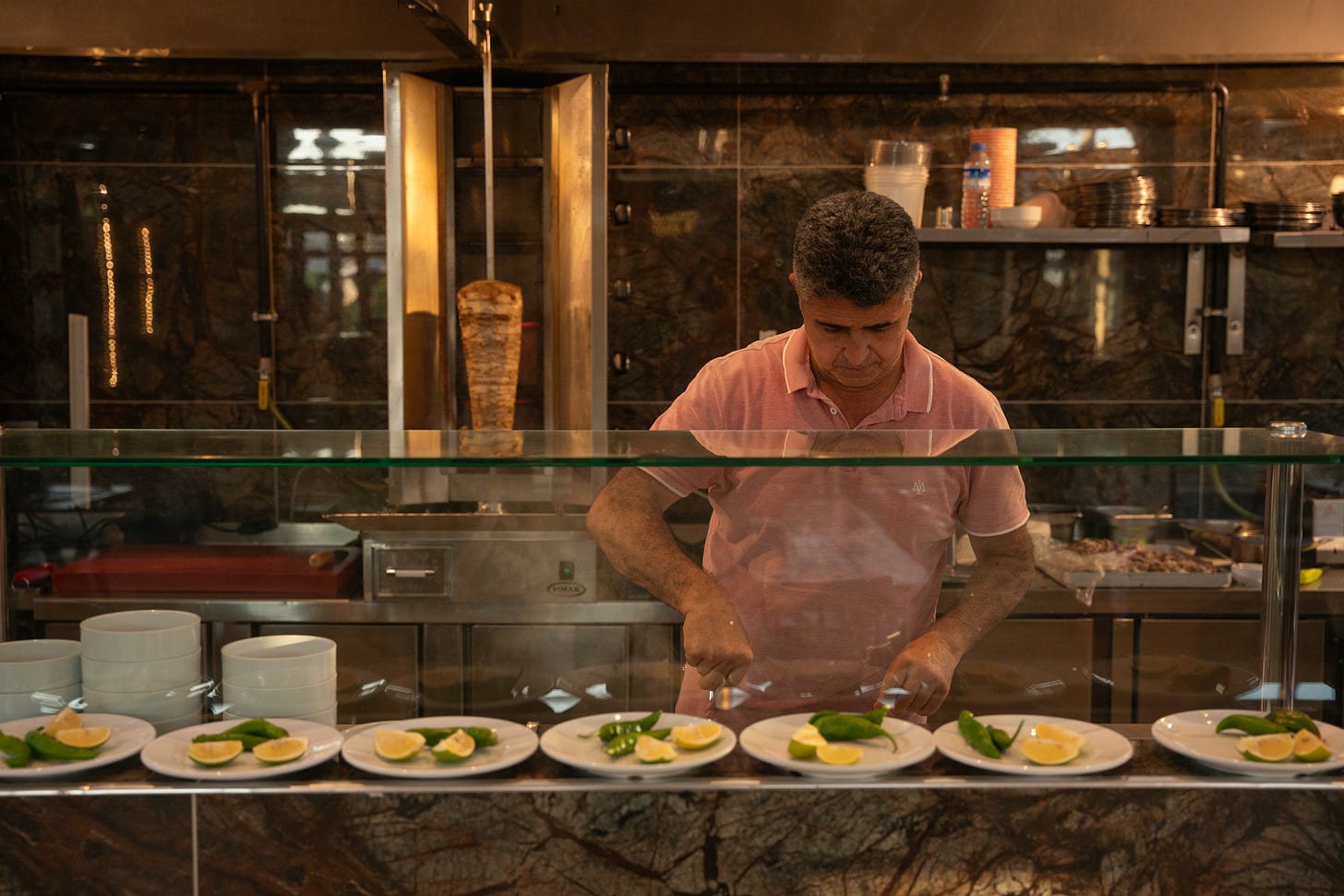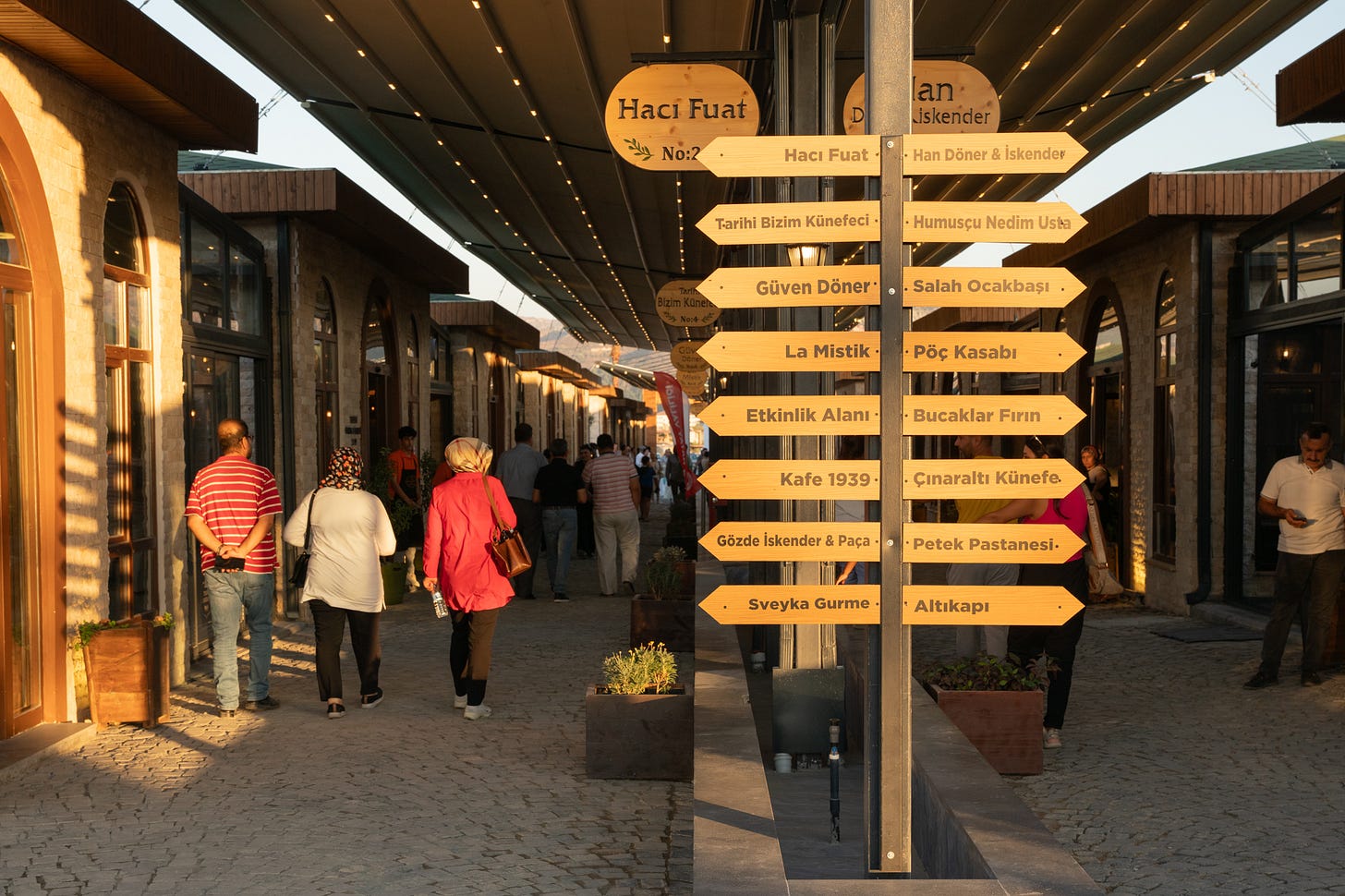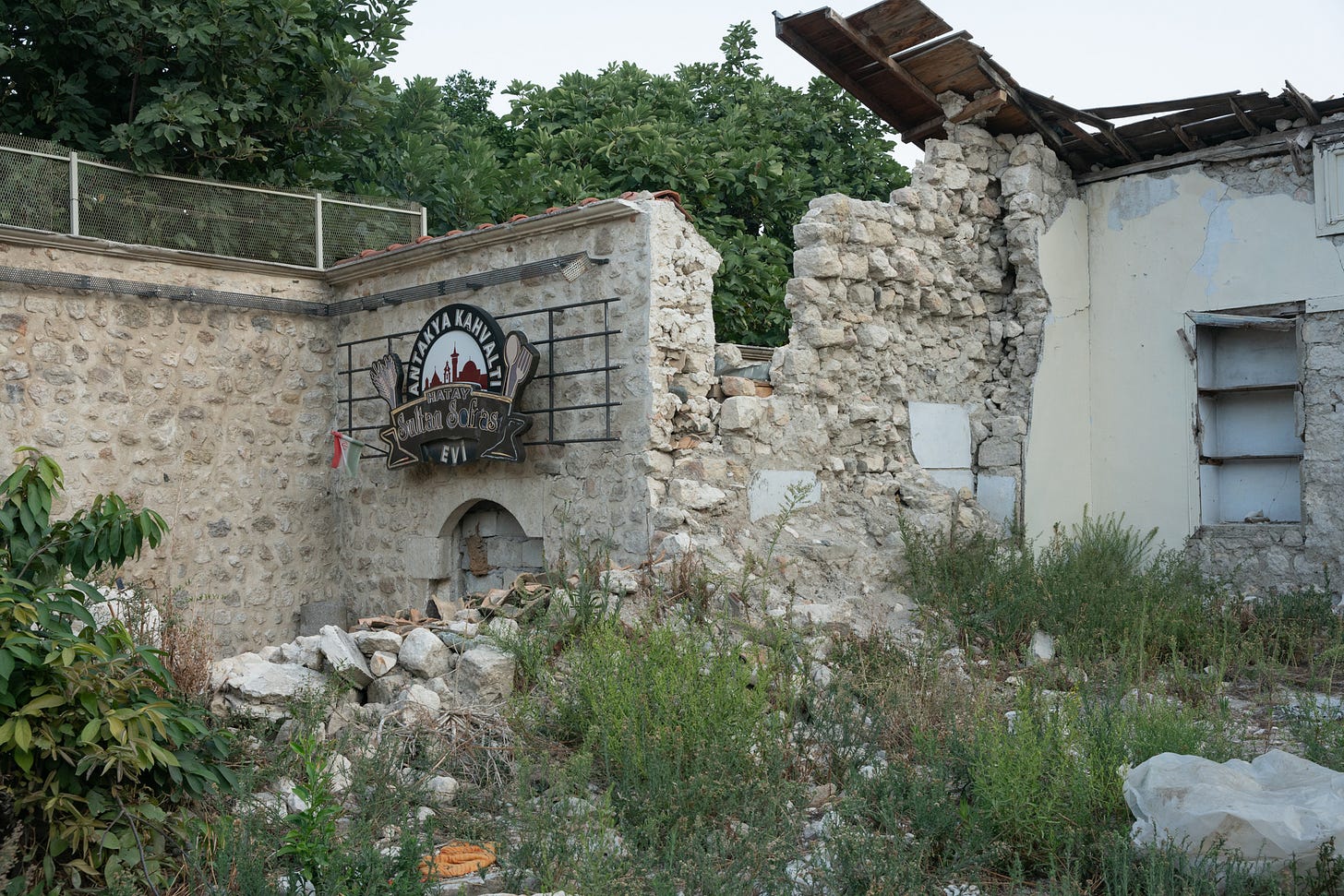ANTAKYA — Ali Kılıç works in a hypnotizing rhythm, mixing hummus or garnishing plates with pickles and olive oil to serve to customers. The phone rings occasionally, and Ali answers while working at the counter next to the window, looking at one of the semi-destroyed alleys of Antakya's Long Bazaar.
“Alo, come again?” Ali answered one of the calls. “Two hummus. I'm sending it right away, brother,” he told the person on the other end.
The restaurant is named after Ali’s father, Edip Usta, and it reopened two months after the February 2023 earthquakes hit Turkey and neighboring Syria. His father suggested reopening, not because they expected many customers, but to regain a sense of routine. “It wasn’t important whether customers would show up or not,” Ali said.
During lunchtime in early October 2024, there was a constant stream of guests, mostly tradesmen working in the bazaar, female shoppers, or other locals enjoying the hummus, bakla (a mashed fava bean spread), kebab, or soup, the latter garnished with a flavorful garlic-cumin olive oil.
The Kılıç family did not have many expectations when they opened. Antakya lay mostly in ruins, but they were trying to find healing in doing what they used to do, with familiar faces around. Financially, they managed to support both their own families and those of their employees’ during the difficult times.
Now, things are about to change once more. Antakya's Long Bazaar, the heart of the city's centuries-old trade history, is under construction. Step by step, the remaining shop owners are being relocated. At the end of November, Ali will need to move to a temporary bazaar and set up in one of the shipping containers that have been used as houses or shops by hundreds of thousands of earthquake survivors in the region for over a year and a half.
Part of the historic bazaar will be rebuilt; other areas will be restored. Ali accepts that infrastructure problems and the destruction of the bazaar need to be fixed, yet he worries about the future of his business.
"Everyone will be dispersed to different places," the hummus-master said. He adds that the new container will be too small, and that he fears more competition. "We will not be able to earn what we earn currently. People won't want to come."
Despite the struggles, Ali doesn't plan to leave Antakya. "It can be like what it used to be again," he says of his city. "But we need promises to be kept."
Known as "the Queen of the East" during the Roman Empire, Hatay – or Antakya, as most locals prefer to call it – located at the contemporary Turkey-Syria border, has been a melting pot of cultures for centuries. The city’s Levantine-Mediterranean cuisine reflects this rich history and fertile surrounding lands, which make up part of the Fertile Crescent, filled with olives, vegetables, fruits, and spices. In recognition of its culinary heritage, UNESCO awarded Hatay the prestigious Creative City of Gastronomy commendation in 2017.
In addition to its rich historical legacy, food was one of the reasons people visited the city prior to the disaster. In the wake of the earthquakes, food-related businesses were among the first to reopen, even though they also faced great destruction. It offered a vital sense of normalcy to residents still in shock.
Despite ongoing challenges, one and a half years after the earthquakes, many food establishments strive to keep culinary traditions alive, contributing to both the financial and emotional healing of Antakya. The reopening of local eateries like Edip Usta's hummus restaurant symbolizes the city’s and its people’s resilience, in addition to providing opportunities in a place with limited possibilities.
According to the head of Antakya’s Commerce Chamber, Hikmet Çinçin, only a quarter of the establishments focusing on food and dining were able to return to business after the earthquakes. Each still navigates their own struggles while strongly believing that cooking and sharing food can contribute to the future of their beloved Antakya.
Ali Kılıç’s story is just one among many in Antakya’s Long Bazaar. Some in the bazaar have already moved to containers or other temporary locations, while others await their turn.
The oldest still-standing part of the bazaar hosts the famous Bucaklar Fırını, a bakery known for its Antakya delicacies like biberli ekmek – peppered bread – or simit – a type of Turkish bagel often eaten with cumin and salt. Nearby is Pöç Kasabı with their signature tepsi kebabı (tray kebab). Between these iconic establishments, Hakan Coşkuner runs a charcuterie that also sells a variety of homemade mezes, a staple in the city’s food culture.
Renovations in this part of the bazaar will start earliest in one year, according to the information several business owners learned from the officials. However, Coşkuner already feels the ripple effects of reconstruction efforts around his shop.
The meze-seller believes that the number of customers and his income will go down even more when others move to containers, like his neighbor Kılıç. "The Long Bazaar has a different atmosphere," he said. "People sometimes shop here just for that. We won't have it in the container bazaars." When he was asked if he would leave the Long Bazaar if it was his choice, Coşkuner said no.
"This [bazaar] is the only place still standing from old Antakya," he continued, reminiscing about the architectural landmarks of the city before the earthquake. "Habib-i Neccar Mosque is gone. Old Antioch houses are gone. The parliament building is gone. This place is the only one we have now."
While small, traditional businesses in the bazaar struggle to find their footing, larger establishments like Ayan Meyan, located in the renowned Museum Hotel Antakya, have also returned at the end of September, offering a more polished yet equally poignant symbol of Antakya’s slow return to life.
The restaurant looks over centuries-old mosaics. "This place is a symbol of returning to life for us and Antakya," said Sabiha Asfuroğlu, a member of the family who owns the hotel. Ayan Meyan was packed during a midweek day. Locals who can afford the upscale restaurant were enjoying their evenings, chatting with friends, and even some foreign visitors were tasting Antakya cuisine. Asfuroğlu had goosebumps while recalling how her friends felt during their first night at the restaurant after the reopening. "For some time, we tried to forget what happened," she remembered. "We wanted to believe that nothing had changed."
Though places like Ayan Meyan are bringing back a sense of normalcy, much of Antakya’s landscape remains unrecognizable. Hatay Gastronomy House – a restaurant serving local recipes the Hatay Metropolitan Municipality established following the UNESCO recognition – was once located in an old Antakya house with a beautiful garden. After it was destroyed by the earthquakes, they moved to a new building complex that belongs to the municipality.
"Our new place kind of looks over Antakya and away from the dust and destruction in the city center," the manager, İpek Aslan, said. “It provided an escape route to people with the food they’re used to.”
Restarting work also helped Hatay Gastronomy House’s 30-plus employees and their families, both emotionally and financially, Aslan added. “Working heals you,” she said. "We also felt and still feel like we were defending our city and its culture by keeping the cuisine alive."
Aslan is hopeful about Antakya’s return to its former glory, but she admits that the city needs support to make it happen. Tourism can be one of the ways to help, she says. "It is important for us to see people coming here and being with us, supporting us while tasting our food and buying some to take home."
One related initiative is the city’s new Gastronomy Bazaar. Located on the road connecting Antakya to the rest of Turkey, the Gastronomy Bazaar opened its doors around the same time as Ayan Meyan. The municipality and governor invited a dozen famous institutions from Antakya to open branches in the newly built compound, including Petek Patisserie, Kebapçı Salah, and Çınaraltı Künefe. With all these restaurants under one roof, the goal was to create a dining atmosphere that reminded visitors of the historic center of Antakya. After just a few weeks in business, the bazaar was lively and full during an October afternoon.
Prior to February 2023, Mete Güneş’s restaurant, Gözde Antakya, was located not far from the Gastronomy House, on the city’s famous Saray Street. Saray Street and the surrounding neighborhood were known for their lively bars and restaurants that opened until late, and Gözde Antakya was a place where people would eat soup or döner after a night out. After his restaurant in old Antakya was destroyed, Güneş found that the path to rebuilding meant starting anew in the Gastronomy Bazaar.
Before the earthquakes, Saray Street was also famous for its street singers who accompanied the regular barflies with midnight songs. The new bazaar hosted some singers after its opening, bringing memories and tears to visitors’ eyes, Güneş recalled.
According to Güneş, the bazaar gives visitors a sense of what they used to have, and seeing familiar faces while eating familiar food helps even more. "This is the most beautiful part of this bazaar," he said. "The things that make Antakya Antakya are here… When people see which businesses are reopened, they want to come here and visit us."
Some businesses have relocated elsewhere in the province. Restaurant Hatay Sultan Sofrası used to have two locations in the heart of Antakya. The first had been in operation since 1991, focusing on meat and ev yemekleri, homestyle dishes. A breakfast branch was added in 2015.
With both buildings in ruins, the manager of the Hatay Sultan Sofrası, Mert Mustafa Tansal, found an alternative next to the main road in Arsuz, with a sea view and a garden with pomegranate, grapefruit, and mandarin trees.
While only 60 kilometers away, Tansal regularly returns to Antakya to buy salty yogurt, tomato paste, rice, and bulgur. All the ingredients are needed for local specialties like oruk (a local version of kibbeh), semirsek (a traditional pastry filled with meat), and aşur (a special wheat-paste boiled in broth for hours).
Yet every trip to his hometown hurts. “We cannot recognize the places we have always gone to,” he said. “Especially after the rubble was cleaned up...it upset us.”
In contrast, Hatay Sultan Sofrası serves as a sanctuary for Tansal and the customers who miss Antakya and try to keep in contact with it. “Be it kaytaz böreği or yogurt soup, we provide the flavors that people missed,” Tansal explained. “In this way, we remember and celebrate our memories, share our grieving, and talk.”
Food is important for solidarity and a reminder that the people of Antakya will not give up on their habits and culture, Tansal believes. “The important thing is not whether we are hungry or full,” he said. “The conversation is always about what the next meal should be. That's how much food is part of our lives.”
Like many in Antakya, Tansal clings to the hope that one day, the city will resemble what it once was. Despite all the hardships, he remains optimistic about the future. “We are telling everyone that we are here only temporarily,” he said. “Our goal is to return to Antakya, to return to our nest.”
He hopes his children will continue with the business and, in this way, reconstruct a new Antakya. “Everyone will return to Antakya,” he said. “They will meet with their old neighbors. They will go to their old neighborhood. Those conversations will continue where they left off. Places may change, houses may change, but people's conversations will continue in the same way. We live with this dream. It is what we hold on to.”
This newsletter is supported by readers via Substack and Patreon. Paid subscribers get full access to our recaps, reports, members-only chat and news tracking tools. All proceeds go towards sustaining our journalism.
Turkey recap is produced by the Kolektif Medya Derneği (KMD), an İstanbul-based non-profit association founded by our editorial team to support and elevate news media and journalists in Turkey. Contact us: info@turkeyrecap.com
Diego Cupolo, Editor-in-chief @diegocupolo
Gonca Tokyol, Editor-at-large @goncatokyol
Ingrid Woudwijk, KMD president @deingrid
Emily Johnson, Deputy editor @emilyjohnson
Damla Uğantaş, Tr Türkçe editor @damlaugantas
Azra Ceylan, Economy reporter @azraceylani
Dénes Jäger, Editorial intern @denesjager



